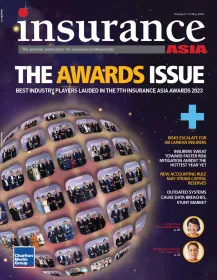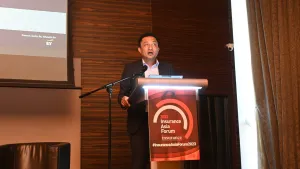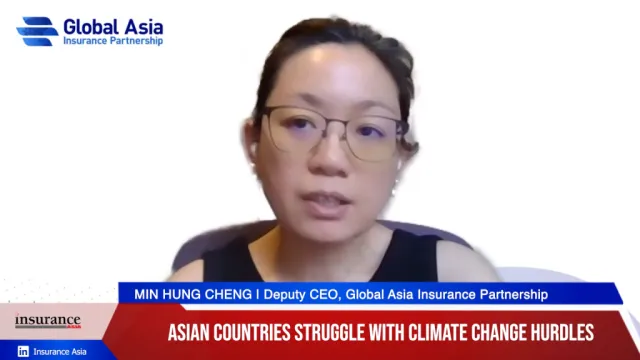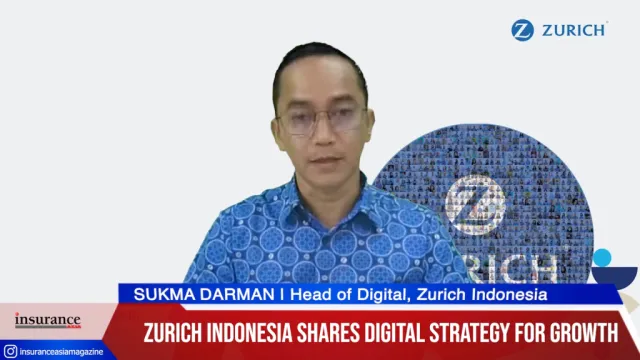HK insurers’ response to sustainability challenges
By William KN ChanThe effort to embrace and promote sustainability is not without challenges
Rarely do we see so many different parties, public and private, crossing geographical, political and social boundaries to work in unison for a common objective. A broadening of the understanding of the dire consequences of inaction and a strong sense of time urgency have fueled the now unstoppable momentum behind the global drive for green and sustainability.
However, the effort to embrace and promote sustainability is not without challenges. Whilst many of such challenges are common across countries and sectors and require coordinated global solutions, some are specific to the region or industry and require local or industry-specific solutions. Insurers in Asia face both types of challenges in progressing their sustainability initiatives.
The HKFI (Hong Kong Federation of Insurers) has conducted a “Green Insurance Survey” amongst its members in 2021. The findings highlighted a number of barriers facing insurers in Hong Kong as they pursue green insurance objectives, including: (1) a lack of harmonized market standards and definitions. (2) a lack of policy framework for green insurance product development; and (3) limited knowledge and expertise on green insurance.
Without harmonized market standards, especially reporting and disclosure standards, companies have uncertainty on what to aim for and prioritize. The latest focus is on the consultation by the ISSB (International Sustainability Standards Board), which was created by the IFRS (International Financial Reporting Standard) Foundation Trustees with a mission to deliver a comprehensive global baseline of sustainability and climate-related disclosure standards. The emphasis is on enabling the production of globally comparable sustainability information. It seeks to build upon the recommendations of the Task Force on Climate-Related Financial Disclosures (TCFD) and incorporate industry-based disclosure requirements derived from Sustainable Accounting Standard Board (SASB) Standards. Insurers, along with other financial service providers, have been invited to participate in the ISSB’s 120-day consultation exercise, closing on 29 July 2022.
One key challenge facing the development and implementation of globally harmonized standards is the data and resources requirement by financial service providers in order to produce reports consistent with proposed standards. Proactive engagement by the industry in the consultation would help the standard-setting bodies to strike a good balance between comprehensiveness and a practical implementation timeline.
Whilst insurers may have aspired to provide green insurance products in response to the growing ESG consciousness and demand of their customers, the enthusiasm has been held back by a lack of a clear policy framework on green insurance products. Recent reports about large corporates being charged with “greenwashing” further added to the hesitation in view of the uncertainties on what qualifies as a “green insurance product”. Developing an effective policy framework on this requires close coordination between the regulator and the industry.
The HKFI has established a Task Force on Green Insurance, drawing in subject matter experts from the industry. Several sub-groups have been formed to look into a couple of dimensions including guidelines /benchmarks for disclosure, fostering a culture of green and ESG, and green product development (one for Life Insurance and another on General Insurance). Regular meetings with the HK Insurance Authority have been held to discuss proposals and deliverables.
The UNEF FI Principles of Sustainable Insurance (PSI) have just published their first ever ESG underwriting Guide for the Life & Health industry. The guide reflects the critical role of underwriting risk in facilitating a more sustainable future for clients, business partners and communities. Insurance companies are encouraged to review the guide and consider how this can support their business when evaluating the potential impact of ESG risks on Life & Health underwriting.
The “talent gap” challenge is not specific to the insurance industry. As more and more financial sector companies signed up for climate and sustainability covenants and alliances, they have an increase in demand for talents with ESG expertise to help them to make preparation and take the steps required to meet their pledged targets.
To address this gap, a Capacity Building Working Group has been established by the HK Centre for Green and Sustainable Finance (GSF), led by the HKMA (HK Monetary Authority) and supported by representatives from a broad segment of the financial industry, including insurers, banks, asset managers and leading Universities. Adopting the recommendation from the working group, the HK Government Financial Secretary has announced, in its 2022-23 Budget Speech, a three-year “Pilot Green and Sustainable Finance Capacity Building Support Scheme”. Under the scheme, subsidies will be provided for the training and acquisition of relevant professional qualifications. Other initiatives including a central online open-access repository for relevant training courses and qualifications are in progress.
In all, the insurance industry, in conjunction with other key players in the financial sector and the regulators, has taken proactive steps to overcome the challenges they face in sustainability. As a major part of the global financial industry and the owner of a very sizeable pool of investment assets, insurers are well-positioned to make significant contributions to green and sustainability goals over time.
*****
William KN Chan is the Chief Investment Officer of HSBC Life (HK) and a convener of the Sub-Group on Fostering a Culture on Green & ESG, Task Force on Green Insurance of the Hong Kong Federation of Insurers.












 Advertise
Advertise












